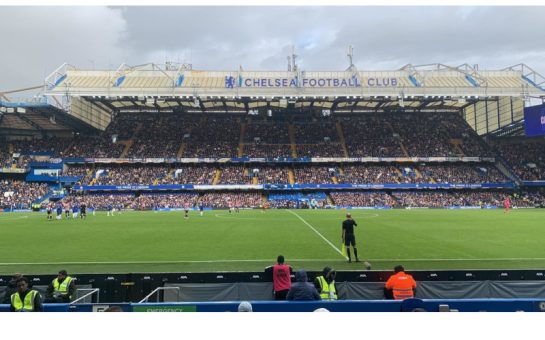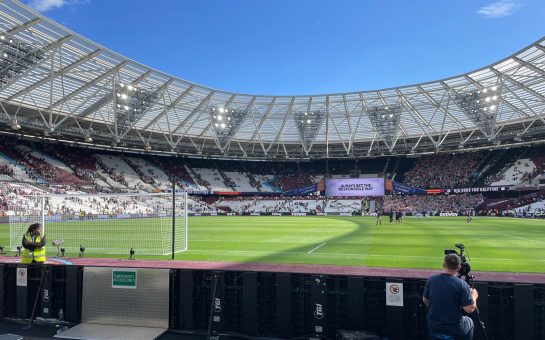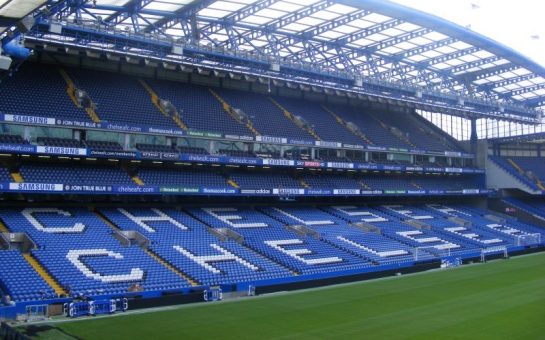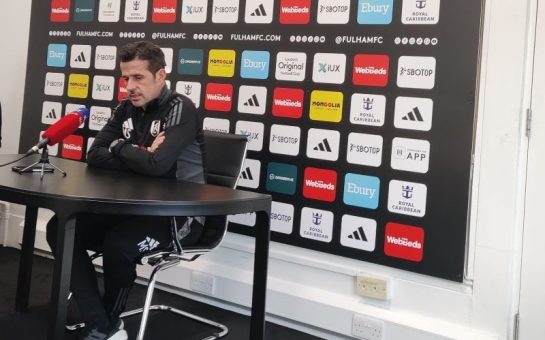This week’s BBC documentary offered a revealing insight into the workings of a modern football club under foreign ownership.

This week BBC’s ‘QPR: The Four Year Plan’ documentary premiered on our television screens, offering a ridiculously revealing insight into the workings of a modern football club under foreign ownership.
Football club owners arriving from abroad is nothing new to the English game, but it certainly is when those backers are high-profile billionaires who allow cameras to cover every moment of the madness.
Like the programme, let’s start at the beginning. QPR was rescued from financial meltdown and potential relegation in August 2007 by motorsport moguls Flavio Briatore and Bernie Ecclestone in a takeover worth £14million.
By December 2007 steel magnate and the world’s 21st richest man, Lakshmi Mittal, joined the board, with his son-in-law Amit Bhatia taking a hands on role at the club.
Chairman Gianni Paladini was heavily involved in proceedings and was shown as the man mediating between the barmy Briatore and the coaching staff employed at the time. Of whom were increasingly changed as time went on.
The documentary is a genuinely compelling chronological history of the West London club from 2007-2011, starting from the pits of the Championship and progressing to promotion into the worlds most watched league.
Not wishing to spoil the engaging content of the 90 minute must-watch, there is a fantastic quote to be heard from Briatore just five minutes into viewing.
As Martin Rowlands loses possession during the Hoops’ home game against Birmingham, the Italian is heard announcing: “I want to f***ing sell this idiot.”
This simply sets the tone for an hour and a half rollercoaster ride highlighting Rangers’ bizarre ownership model in a manner that makes Roman Abramovich look like Steve Gibson.
At one point the video shows fans chanting ‘Four year plan? You’re having a laugh!’ and the supporters were right at the time. But the owners did get the job down, promoting QPR to the Premier League in 2011 within the aims and objectives laid out upon their takeover.
It becomes clear that three men played pivotal roles in QPR’s promotion last season, from positions on the board, in the dugout and on the pitch.
Amit Bhatia emerges from the camera’s glare as a sensible businessman who ran the club amid a backdrop of negativity, mainly emanating from the R’s Italian bosses.
Neil Warnock was the only manager who survived the sack during the F1 entrepreneurs’ tenure at the club, which lasted little past promotion celebrations.
Warnock, recently appointed as Leeds United boss after receiving the sack at Loftus Road by new chairman Tony Fernandes, became the 6th manager at QPR in two and a half years in March 2010 and led the team back to the top flight.
Mercurial captain Adel Taarabt bagged 19 goals from midfield during the league campaign, including numerous spectacular efforts from long range.
The Moroccan has not adapted as easily to life in the top division as he did in England’s second tier, in which he produced some outstanding performances en route to the title.
These three men were the key cogs in the QPR machine that secured promotion by winning the Championship last year. If Briatore had his way, and had not been sidelined by Bhatia at the start of the season, he may not have allowed Warnock to finish his job, which in turn would not have seen the most out of Taarabt.
Briatore is accurately portrayed as a man of incessant unpredictability, happy with one result before going into a rage if that win was followed by defeat. Or a draw. Or if he didn’t like how the team played. Or anything to be honest.
At times during the documentary you find yourself wondering how the club ever found any stability considering such volatile ownership. But the calm communication and guidance of Bhatia goes someway to explain that feat.
It also proves that Warnock deserved to see out a full season in charge of the team in the Premier League, having produced such miracles to get the club there in the first place.
The number of managers who QPR ploughed through before securing Warnock is staggering. Iain Dowie, Paulo Sousa, Paul Hart, Mick Harford and Jim Magilton were all used and abused before the Yorkshireman took control.
It just goes to show how precocious a commodity stability really is in professional football.
QPR and their at times obnoxious owners did manage to fulfil the four year plan promise, and the story was wonderfully captured in the documentary.
But it was definitely not a sure done thing.
As axed boss Sousa explains: “I think people could see for themselves what was going-on. It was as it appeared to be. And that made it impossible for any manager or coach to be successful.”
Follow James Dickenson on twitter @jdickenson2010




